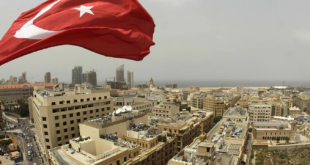Standard and Poor’s downgraded Croatia’s credit rating to junk on Friday, a development deemed “catastrophic” by a local analyst.”The Croatian government’s reforms have so far been insufficient to eliminate the structural rigidities that hamper the country’s growth potential,” the rating agency said in a statement explaining its decision to lower Croatia’s rating from BB+ to BB-.
“Labor and product market flexibility in Croatia is lacking,” and there’s “little room for public investment,” because nearly three-quarters of the budget goes to central government spending, the agency added.
Noting that “since 2009, the Croatian economy has been either in recession or stagnant,” Standard and Poor’s estimates “about a 2 per cent contraction for 2012.”
“During 2013, we expect the economy to stagnate, and then recover only gradually to trend growth of 2 per cent by 2015, well below the pre-crisis average,” the agency predicted.
Croatian economist Zeljko Lovrincevic called the credit rating downgrade “catastrophic”.
“This is a total defeat of the government’s policy. We need agreement with the International Monetary Fund, IMF, urgently,” Lovrincevic said.
Croatian Finance Minister Slavko Linic admitted that lowering the rating “aggravates the conditions for government and the economy,” and said the government would “certainly think” about cooperation with the IMF.
But Linic said the government wouldn’t cut budget spending, especially not public sector wages, pensions and social services.
Croatian Labour Minister Mirando Mrsic announced changes to the Labour Law in an effort to increase the flexibility of the labour market.
Analysts calculated that because of the credit downgrade Croatia will have to pay two billion kuna (about 300 million euros) more than expected next year for the interest on its public debt.
Instead of paying 10 billion kuna (1,4 billion euros) for interest rates, Croatia will have to pay about 12 billion, analysts said.
The credit rating cut by Standard and Poor’s comes on the heels of downgrades by other rating agencies.
Only two weeks ago, Fitch Ratings agency lowered its prognosis for Croatia from “stable” to “negative”, which prompted discussion over whether the country is losing its battle with the economic crisis a year after Zoran Milanovic’s centre left government took power.
GDP fell for a fourth quarter in a row, while experts have noted that during the last four years Croatia’s industrial output fell by 17 per cent.
Unemployment continues to rise steadily, with more than 350,000 now out of work.
It is estimated that 150,000-200,000 positions has been lost since the beginning of the crisis in 2008, almost exclusively in the private sector.
Estimates are that over the same period Croatian GDP fell by ten percent.
 Eurasia Press & News
Eurasia Press & News



